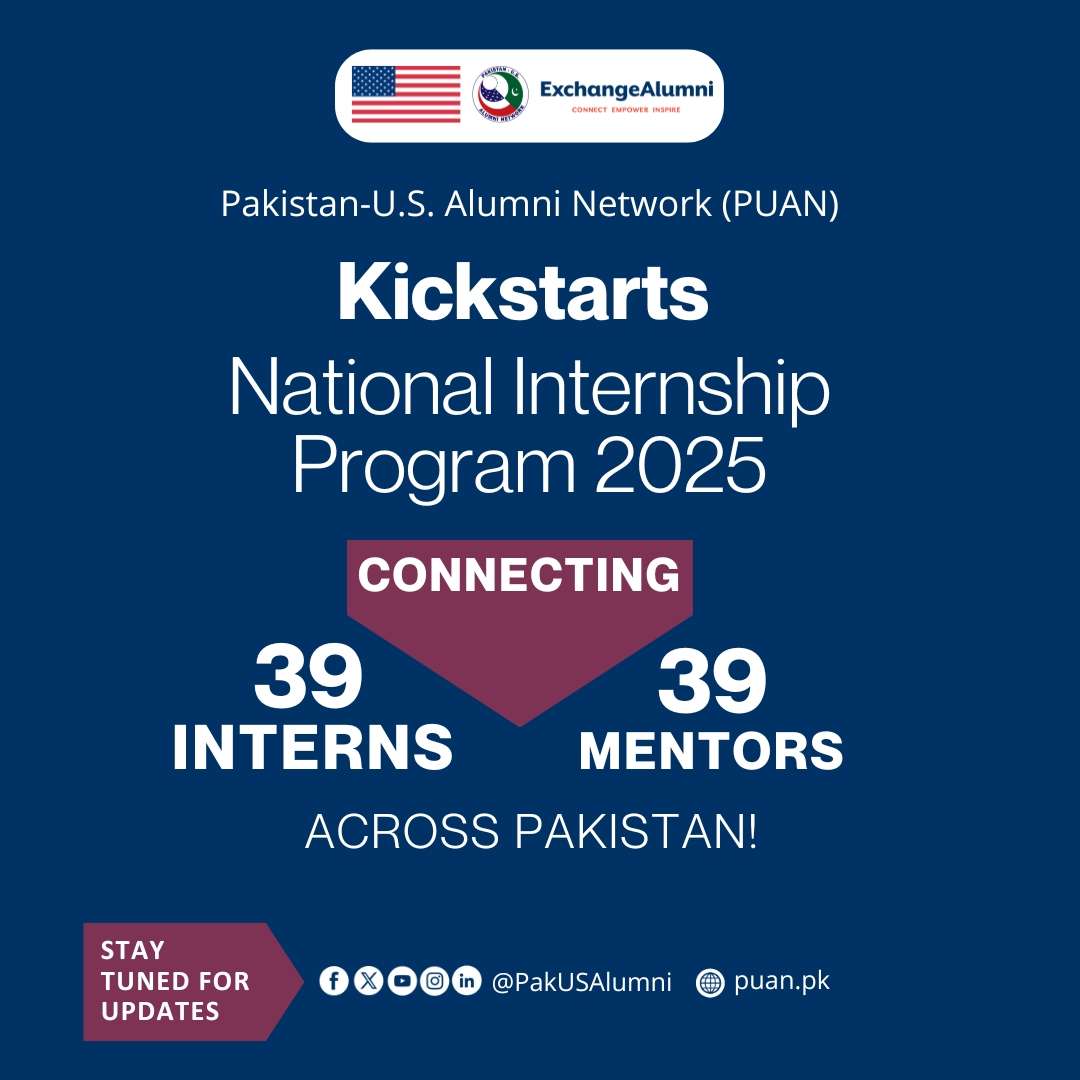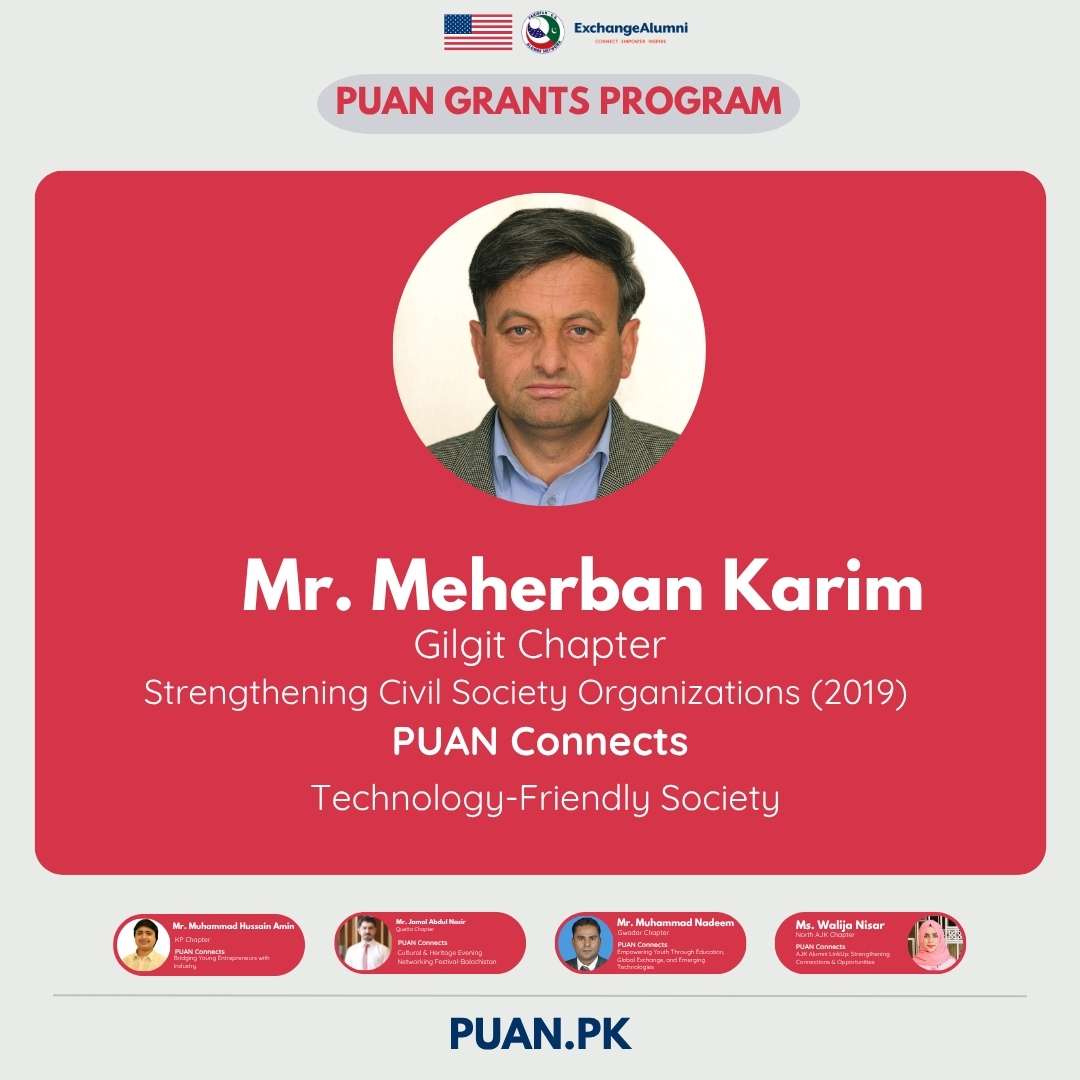Breaking Boundaries: Fulbright Alumni Unite for Climate Action in Islamabad
Funded by the U.S. Mission to Pakistan and in collaboration with the Pakistan-U.S. Alumni Network (PUAN), the United States Educational Foundation in Pakistan (USEFP) organized the 17th Annual Fulbright Alumni Conference from January 12-14, 2024 on the theme of climate change. Around 250 alumni of the Fulbright Program, who have completed Master’s or PhD degrees in the United States, gathered in Islamabad to discuss the challenges of climate change and report on actions they and their organizations are taking to reduce its impact on communities across Pakistan.
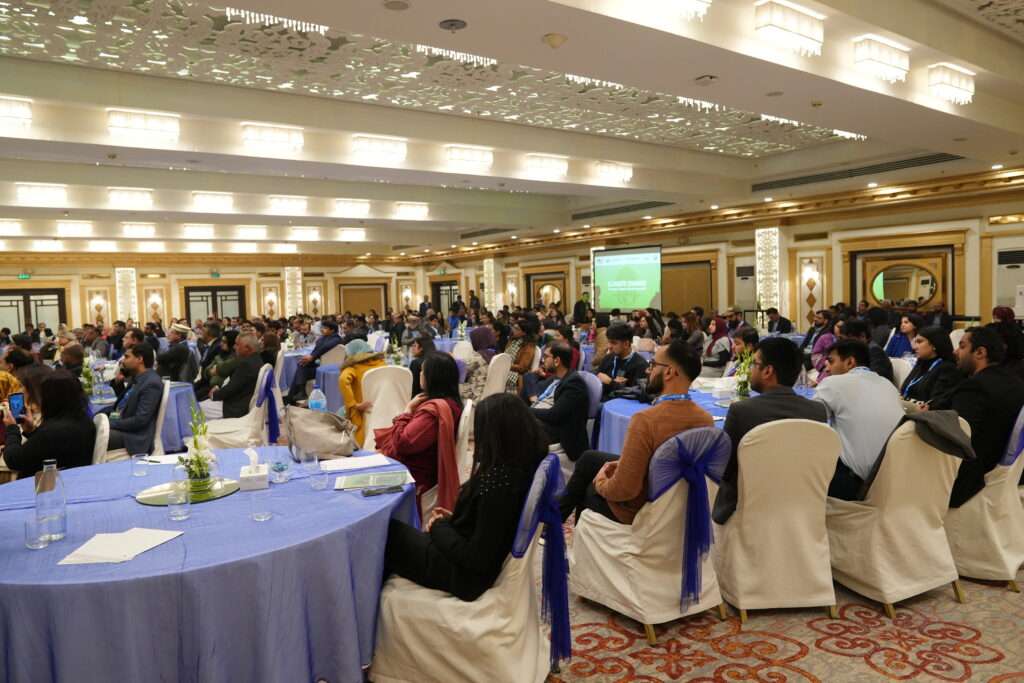
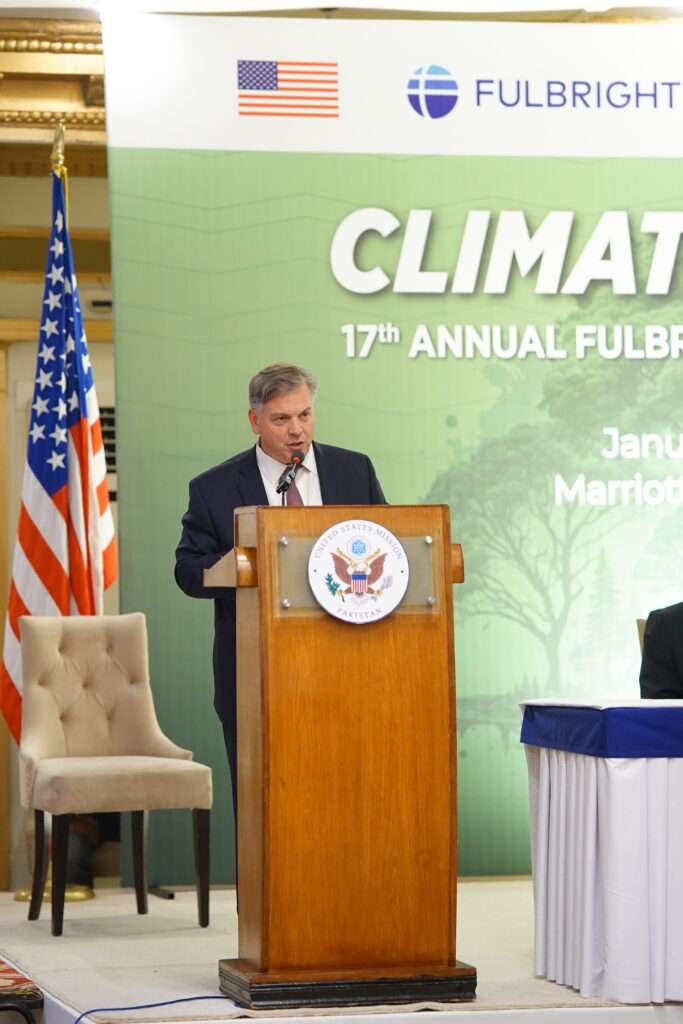
“The United States invests in exchanges like the Fulbright Program because we know that no country can tackle seemingly intractable challenges – like climate change – alone. Exchange programs, and the Pakistan-U.S. Alumni Network, deepen people-to-people ties and provide opportunities for all of us to connect, to problem solve, and to make a positive difference together. PUAN members like you are making an impact here in Pakistan and around the world,” said U.S. Ambassador Donald Blome while speaking at the opening ceremony of the conference.
The keynote address was given by Senior Humphrey Fellow Dr. Amjad Saqib, Founder of the Akhuwat Foundation and winner of the prestigious Ramon Magsaysay Award in 2021.
Fulbright alumni highlighted their efforts to develop smart solutions to the climate crisis and learned from one another in a highly collaborative setting. From the role of education in addressing climate change to the importance of green business and urban planning in making cities more resilient, the alumni shared ideas and research that can help the government and private sector manage the crisis more effectively.
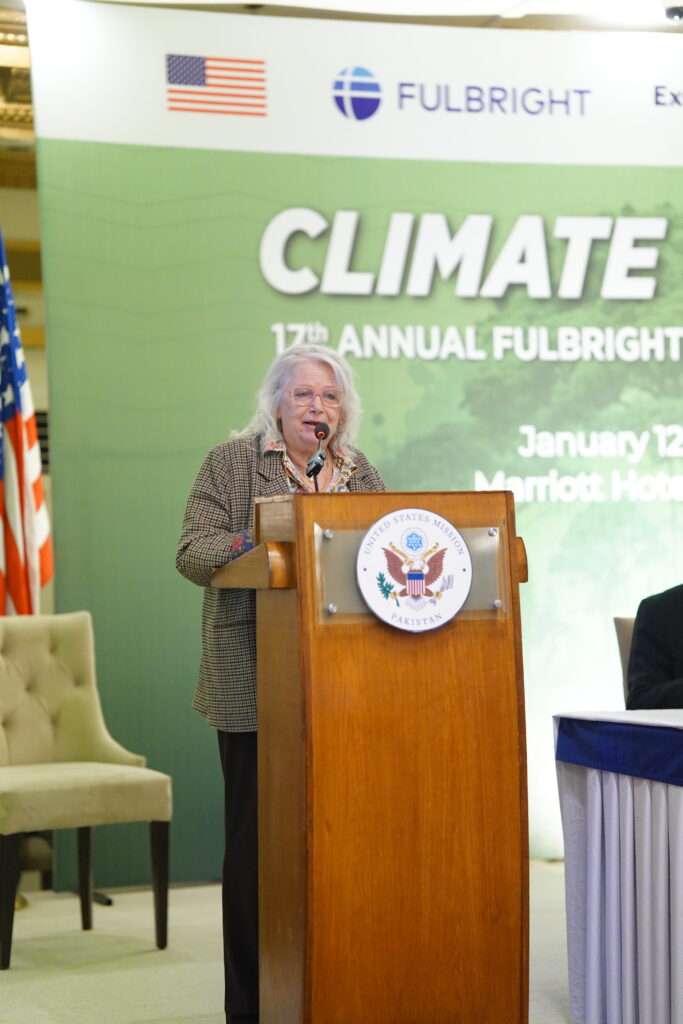
USEFP Executive Director Rita Akhtar welcomed the honored guests and participants, noting, “Nowhere in the world is the Fulbright Program having a greater impact than in Pakistan. The Fulbright Pakistan alumni community represents a diverse and dynamic pool of professionals contributing to the country’s socio-economic development, including low-income educational opportunities, disability inclusion, access to information, public libraries, district/provincial/federal administration, energy, transportation, banking and finance, and health. Everywhere you go in Pakistan, whether in terms of geography or economic sector, you will find Fulbright alumni leading and contributing to progressive change.”
Panel Discussion: Gender, Health & Disaster Mitigation
Following the opening ceremony and posing for a group picture, the evening delved into insightful panel discussion on the theme of ‘Gender, Health and Disaster Mitigation. The recent devastating floods in Pakistan brought unprecedented challenges, highlighting the complex intersection of gender, health, and disaster preparedness. Recognizing this urgent need, a powerful session bringing together a panel of Fulbright scholars to explore these critical issues was chaired by Dr. Razia Sultana.
Climate Crises Response – An Intersectional and Feminist Perspective
Fulbrighter Ms. Ayesha Amin shed light on the plight of women during the floods, drawing attention to the forced adoption of harmful menstrual practices due to lack of proper sanitation and hygiene facilities. Her poignant statistic – 6 lac pregnant women displaced with many pregnancies ending in miscarriages – highlighted the stark reality of how extreme weather events disproportionately impact women’s health and reproductive rights.
Climate Change, Specifically Heat Impact on Under-5 Children
Dr. Bhavita Kumari delved into the specific vulnerability of children, particularly under-5s, to heatwaves. Her research presented a correlation between extreme temperatures and stunting, suggesting that the long-term effects of climate change extend beyond immediate heat-related illnesses. This finding underscores the need for child-centric mitigation strategies and healthcare interventions within disaster risk reduction plans.
Floods In Sindh: A Synergic Impact of Climate Change and Bad Governance
Moving beyond individual experiences, Fulbrighter Dr. Altaf Ali Siyal shed light on the systemic factors contributing to the floods. His vivid image of boats floating in the desert region of Sindh painted a chilling picture of the altered climate patterns and unpredictable weather events wreaking havoc on communities. Dr. Siyal’s call for addressing bad governance as a crucial element of disaster mitigation resonated strongly with the audience, emphasizing the need for robust policies and inclusive practices.
From Glacial Outbursts to Understanding Floods: Addressing the Challenge from All Angles
Dr. Nazir Ahmed brought the discussion to the northern mountainous region of Gilgit-Baltistan, highlighting the threat posed by Glacial Lake Outburst Floods (GLOFs). He highlighted the socioeconomic and public health consequences of these events, stressing the importance of early warning systems and community preparedness.
The Impact of Glacial Lake Outburst Floods (Glofs) On Socioeconomic Conditions and Public Health in Gilgit-Baltistan
Fulbrighter Dr. Bilal Iftikhar provided a comparative perspective, analyzing the 2010 and 2022 floods to identify patterns and draw valuable lessons. His insights emphasized the need for data-driven approaches and long-term planning to build lasting resilience against future disasters.
Water Scarcity in a Post-Flood Landscape: Finding Sustainable Solutions
The panel discussion concluded with Mr. Hannan Hussain’s focus on the immediate challenge of water scarcity in post-flood Pakistan. He emphasized the need for innovative water management solutions, community engagement, and sustainable practices to ensure clean water access for all.
Looking Beyond the Session: Collaborative Action for a Resilient Future
The panel discussion on “Gender, Health and Disaster Mitigation” was a powerful reminder of the intricate web of vulnerabilities exposed by extreme weather events. The session concluded with a call to action, urging governments, civil society organizations, and individuals to work together in a gender-inclusive and environmentally conscious manner to ensure that climate change doesn’t define Pakistan’s future.
From addressing the specific needs of women and children to tackling systemic governance issues and exploring sustainable water solutions, the session provided a roadmap for moving beyond disaster response and towards proactive mitigation strategies. As Pakistan works towards rebuilding its communities, the lessons learned and collaborations forged through this session will be instrumental in creating a more resilient and just future for all.
Film Screening: ‘The Sky is Far; the Earth is Tough’- Fulbrighter Haya Fatima Iqbal
As the evening approached, the Climate Change Conference further explored the stark realities of climate change facing the people of Gilgit-Baltistan (GB) with the powerful documentary, “The Sky is Far; the Earth is Tough” by Fulbrighter Haya Fatima Iqbal. The film painted a vivid picture of how melting glaciers, unpredictable weather patterns, and resource scarcity are impacting the lives and livelihoods of communities in this breathtaking yet fragile region.


Following the screening, a Q&A session provided a platform for open dialogue and deeper understanding of the challenges and potential solutions. This poignant reminder of the human cost of climate change served as a crucial catalyst for the conference’s discussions, emphasizing the urgent need for collaborative action to safeguard the communities and ecosystems of GB in the face of a changing climate.


